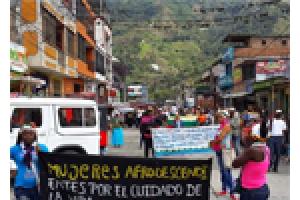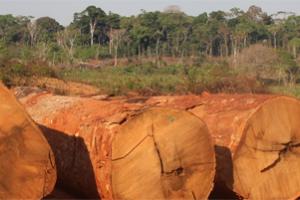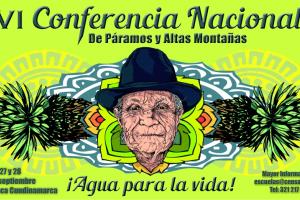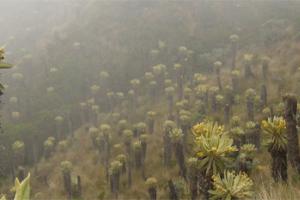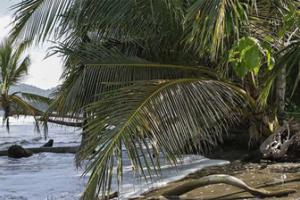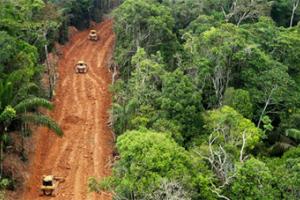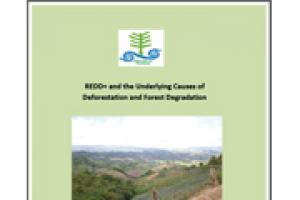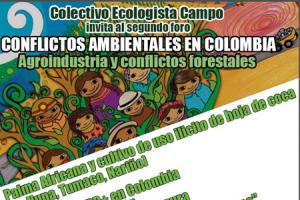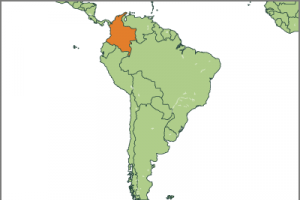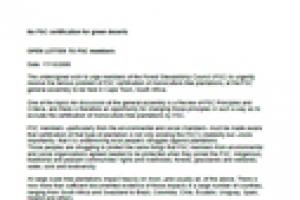An article by Charo Rojas, Marilyn Machado, Patricia Botero and Arturo Escobar charts the cumulative processes that have infringed the rights of Afro-descendant populations and destroyed their territories. These processes, they say, are of such magnitude that they may be regarded as crimes against humanity, ecocide and ethnocide.
Colombia
Other information
11 March 2015
Other information
2 October 2014
Ony available in Spanish.
Más de 100 personas entre estudiantes, ambientalistas, activistas sociales y dirigentes comunitarios, se congregaron el domingo 21 de septiembre en inmediaciones de la vereda El Manzano 20 kilómetros al suroriente de Pereira. La cita era en el marco de la jornada mundial contra los monocultivos forestales, justo en esta zona rural donde la multinacional Smurfit kappa Cartón de Colombia acapara grandes extensiones sembradas en eucaliptos y pinos.
Other information
4 September 2014
Friends of the Earth Colombia, CENSAT Agua Viva, is making available to the public three promotional audios for the Conference on Páramos and High Mountains, aimed at reaching the residents of the high Andean mountains. The Conference calls on mountain communities and the campesino, indigenous and social organizations of Colombia to participate in a space for reflection and networking by people for the defence of the mountain territories.
Bulletin articles
4 September 2014
Meekly the water flows from lichens and stones
like a flood of feelings from
the soul of the earth...
(Efraín Gutiérrez Zambrano)
Bulletin articles
4 July 2014
"They consider us the periphery of the periphery"
Other information
13 November 2013
The Global Forest Coalition launched a new report on 'REDD+ and the Underlying Causes of Deforestation and forest Degradation' based on five case studies in Brazil, Colombia, India, Uganda and Tanzania elaborated by national organizations in those countries themselves. It was launched at the 19th Conference of the Parties of the Climate Convention in Warsaw.
Other information
11 September 2013
Only available in Spanish -
En el marco de la conmemoración del 21 de septiembre, Día Internacional contra los Monocultivos de Árboles, el Colectivo Ecologista Campo está organizando su II Foro de Conflictos Ambientales en Colombia, con la temática de Agroindustria y Conflictos Forestales. Tendrá lugar en día miércoles 18 de septiembre, de 3 a 6 pm en la Universidad del Rosario, Salón 601, Torre2. Entrada Libre.
Other information
30 March 2013
On 14 March 2013, the Colombian organization Movimiento Ríos Vivos marked the International Day of Action Against Dams and For Rivers, Water and Life by calling on communities to mobilize in different ways and take part in the activities scheduled for the day, in solidarity with the peaceful march being held by people displaced by the Hidroituango mega dam project.
Other information
30 October 2011
For more than 20 years, Colombia has seen the ongoing expansion of monoculture tree plantations, to the benefit of transnational companies who have enjoyed and continue to enjoy the support of government policies. To analyze this continued expansion, whose consequences include land grabbing, rights violations and the displacement of communities, CENSAT-Friends of the Earth Colombia organized a forum entitled “Tree Plantations in Colombia: A Critical Look”, held in Bogotá on September 21, the International Day Against Monoculture Tree Plantations.
Other information
15 June 2011
Only available in Spanish -
Por Guadalupe Rodríguez, Salva la Selva
El precio del oro está en alza por décimo año consecutivo, dado que inversores, operadores y bancos centrales lo han buscado como refugio seguro. Se espera que se mantenga esta tendencia. La posesión de oro da seguridad frente a la situación inestable de la economía global, por lo que todos desean el codiciado metal. Y esto tiene consecuencias.
Download full document here
